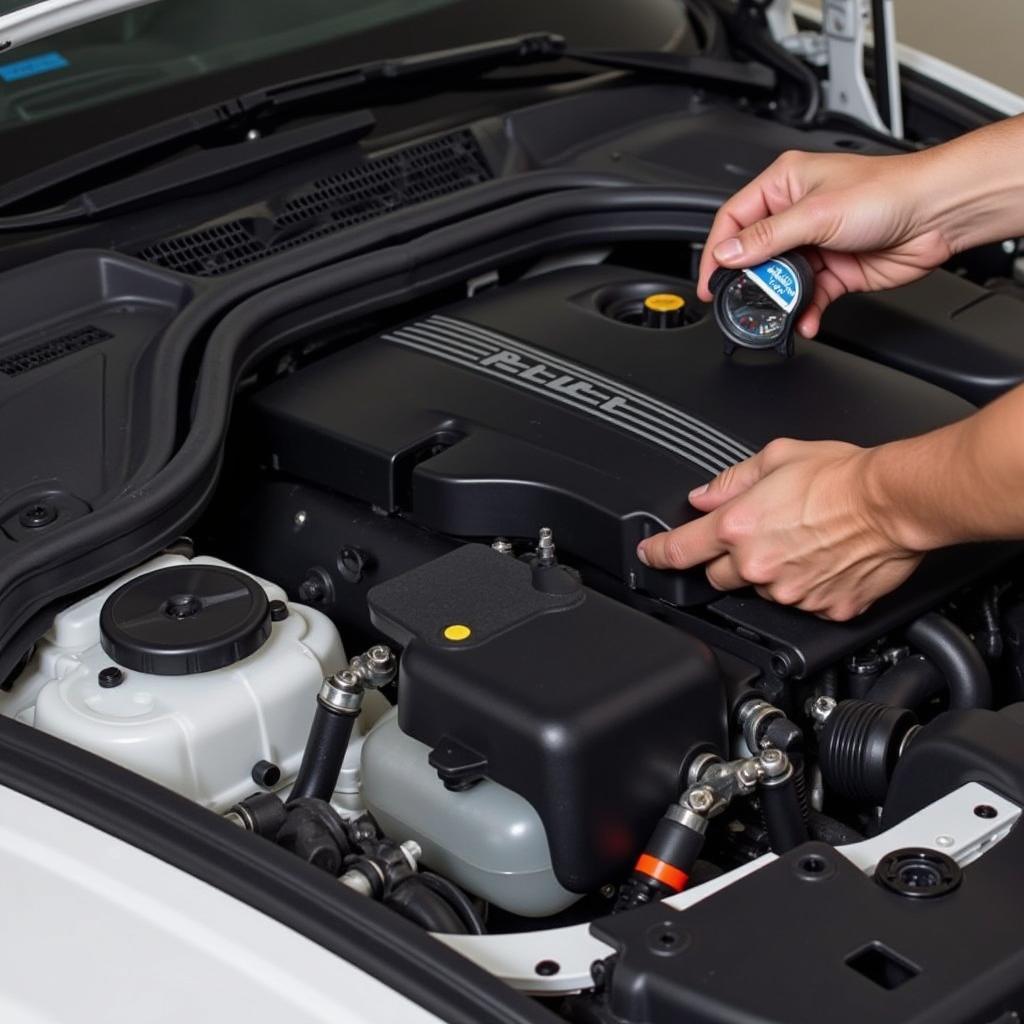A “Parking Brake” warning light illuminating on your 2002 Toyota Prius’ dashboard can be a concerning sight. This issue can stem from various factors, ranging from a simple oversight to a more complex electrical malfunction. This comprehensive guide will delve into the common causes behind this warning light and provide you with practical solutions to get your Prius back on the road safely.
Understanding Your Prius’ Parking Brake System
Before we dive into troubleshooting, it’s helpful to grasp the basics of how your Prius’ parking brake system operates. Unlike traditional cars with a hand-operated lever, the 2002 Prius utilizes an electronically controlled parking brake. When you engage the parking brake, a small motor activates a cable, applying pressure to the rear brake shoes to secure the vehicle.
Common Causes of the Parking Brake Warning Light
Here are the most frequent culprits behind a persistent parking brake warning light on your 2002 Prius:
1. Parking Brake Not Fully Released
This might seem obvious, but it’s often the simplest explanation. Double-check that you’ve fully disengaged the parking brake pedal. Sometimes, the pedal might not return to its default position due to a minor obstruction or a worn spring.
2. Faulty Brake Light Switch
The brake light switch plays a crucial role in both your brake lights and the parking brake system. A malfunctioning switch can disrupt the signal, leading to the warning light illuminating even when the parking brake is disengaged.
3. Low Brake Fluid Level
Your Prius, like any other car, relies on hydraulic pressure to activate the brakes. Low brake fluid can affect the parking brake’s performance and trigger the warning light. Check your brake fluid reservoir and top it up if necessary.
4. Worn Parking Brake Shoes
Over time, the parking brake shoes can wear down, reducing their effectiveness and potentially triggering the warning light. If you hear a grinding noise when engaging or disengaging the parking brake, worn brake shoes are a likely culprit.
5. Parking Brake Actuator Malfunction
The parking brake actuator is the electronic brain controlling the system. If it fails, it can lead to a range of issues, including the inability to engage or disengage the parking brake and the illumination of the warning light.
“A faulty parking brake actuator is a more complex issue often requiring professional diagnosis and repair,” says John Miller, a seasoned automotive electrician with over 20 years of experience. “Attempting to repair it yourself without proper knowledge can be risky.”
Troubleshooting Tips
Before heading to a mechanic, you can try these simple troubleshooting steps:
- Check the Parking Brake Pedal: Ensure it’s fully released and returns to its default position.
- Inspect Brake Fluid: Make sure the brake fluid level is within the recommended range.
- Visual Inspection: Examine the parking brake cable and mechanism for any visible damage or obstructions.
When to Consult a Professional
If the warning light persists after trying basic troubleshooting or you suspect a more serious issue, it’s crucial to consult a qualified mechanic specializing in Toyota hybrids.
FAQs
Q1: Can I still drive my Prius with the parking brake warning light on?
It’s not advisable. While you might be able to drive, it’s crucial to determine the underlying cause as soon as possible. Driving with a faulty parking brake system can compromise safety and potentially lead to further damage.
Q2: How much does it cost to fix a parking brake issue on a 2002 Prius?
The repair cost can vary widely depending on the root cause. A simple brake fluid top-up will be significantly cheaper than replacing a faulty actuator.
Conclusion
A persistent parking brake warning light on your 2002 Toyota Prius shouldn’t be ignored. By understanding the potential causes and following the troubleshooting steps outlined in this guide, you can take the necessary steps to ensure your Prius remains safe and reliable on the road. Remember, when in doubt, consult a qualified mechanic specializing in Toyota hybrids to diagnose and repair the issue accurately.

